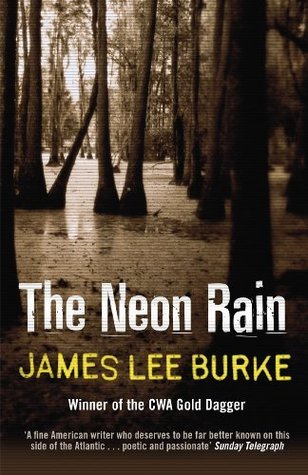
The Tin Roof Blowdown
Book Description
Amidst the chaos of Hurricane Katrina, a shattered city becomes a battleground for survival, revenge, and unraveling secrets. Detective Dave Robicheaux, haunted by his past, races through the storm's fury to expose a ruthless killer while confronting demons that threaten to drown his very soul. With loyalties tested and the boundaries of justice blurred, every decision carries life or death weight. As the floodwaters rise, can one man restore order in a world turned upside down, or will he be swept away by the tide of darkness? Can hope prevail where despair reigns?
Quick Book Summary
Set in post-Katrina New Orleans, "The Tin Roof Blowdown" by James Lee Burke chronicles Detective Dave Robicheaux's pursuit of justice amid chaos and devastation. As the city is ravaged by floodwaters, Robicheaux becomes embroiled in a violent chain of events after a failed looting ends in murder. Confronted by a city plunged into lawlessness and haunted by specters of his past, Dave navigates a tangled web of revenge, greed, and desperation. The storm exposes old wounds and fractures, forcing Robicheaux to confront not only dangerous criminals but also the corrosive effects of trauma on a community and himself. Underscored by themes of moral ambiguity, personal redemption, and the resilience of the human spirit, the novel delivers a gripping exploration of crime and justice during catastrophe.
Summary of Key Ideas
Table of Contents
Chaos and Moral Ambiguity in Disaster
As Hurricane Katrina pounds New Orleans, Detective Dave Robicheaux witnesses a world unmoored from order, where flooding streets become both crime scenes and battlefields. The storm's devastation magnifies the city's entrenched inequalities, setting the stage for new and old resentments to erupt. When a group of young men attempt to loot a wealthy home in the wake of the storm, their actions trigger a deadly chain reaction that pulls Robicheaux into an increasingly complex investigation.
The Haunting Power of the Past
Robicheaux's pursuit of justice quickly becomes tangled with his own traumatising memories—of war, loss, and past violence. The storm's punishing aftermath forces him to confront the ghosts that have long haunted him, testing his resolve and clouding his sense of right and wrong. Throughout the novel, his internal struggles mirror the lawlessness and desperation gripping a city in ruins, highlighting the complicated interplay between duty and conscience.
Redemption and the Human Spirit
As Robicheaux tracks the culprits and peels back layers of the crime, he encounters a cast of characters grappling with their own moral dilemmas. Loyalties shift, secrets come to light, and motivations blur as survivors struggle to navigate a landscape transformed by catastrophe. The chaos strips away pretenses, revealing the extremes people will go to for survival, vengeance, or redemption.
Justice versus Survival Instinct
Burke paints a vivid portrait of post-Katrina New Orleans, exposing the deep-rooted corruption and injustice that fester when society's safeguards collapse. The novel critiques institutional failures—police, government, and social fabric alike—and explores how environmental and human-made disasters converge. Amidst corruption and violence, moments of unexpected heroism and tenderness shed light on the persistent pulse of hope.
Corruption, Despair, and Hope
In the end, "The Tin Roof Blowdown" transcends the boundaries of a traditional detective story. Through its unflinching exploration of loss, retribution, and fragile hope, the novel illustrates how even in the darkest times, the human spirit can strive toward dignity and justice. Robicheaux's journey, fraught with peril and self-doubt, becomes a testament to the enduring struggle for meaning and morality in a fractured world.
Download This Summary
Get a free PDF of this summary instantly — no email required.





